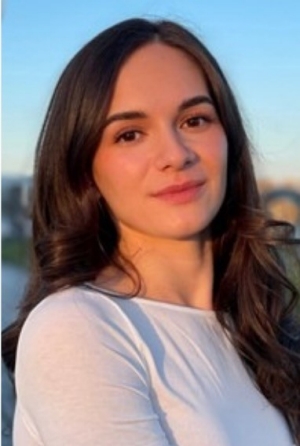Undergraduate student takes on graduate-level research through IRMS

At the Institute for Research and Society (IRMS), undergraduate students don’t just gain experience but also the opportunity to challenge themselves and contribute to cutting-edge insights usually expected at the graduate level.
Through Bridging Divides, Mariana Stefaniuk showed how IRMS training and mentorship empower students to produce meaningful work, culminating in a nationally published article on labour exploitation in the trucking industry.
Exposing Driver Inc. in Canada’s trucking industry
Political Science student Mariana Stefaniuk co-authored an article with Émile Baril in Policy Options titled “Four ways Ottawa can throttle Driver Inc.” (August 27, 2025). The Driver Inc. model classifies drivers as independent contractors, shifting costs and risks to them while removing benefits like fair wages and injury compensation. To inform this paper, Stefaniuk scanned forums and news articles for relevant insights and transcribed interviews with 16 industry actors and truckers to gather evidence on the tangible impacts of Driver Inc.
Following their research, Stefaniuk and Baril put forward four actionable federal reforms:
- Amendments to the Canada Labour Code to cover non-driving tasks and unpaid waiting time
- Adoption of the ABC test to better detect employee status versus contractor misclassification
- Extension of the window for filing wage-related claims from six months to two years
- Enhanced CRA audits when companies dissolve and re-emerge to evade legal responsibilities
Student research with impact
Kassandre Thériault, strategic development and operations lead at IRMS, says:
“We’re glad to see how Mariana showed that students at every level can make meaningful contributions to research. Their work reflects the interdisciplinarity and range of opportunities at IRMS. We will continue to create opportunities for students to explore migration from multiple angles and grow as researchers in the process.”

